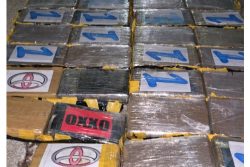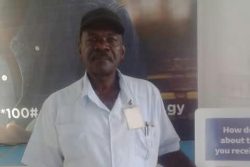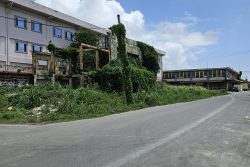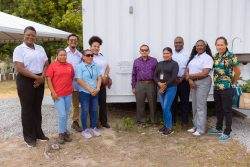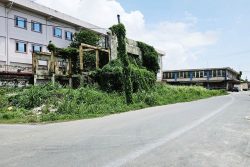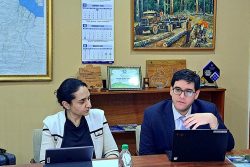 In recent days, I made a brief appearance in Orlando hosting a Caribbean American Passport Connection (CAPC) function honouring Guyanese immigrants who had made important contributions to Florida. In the course of the evening I mentioned that the success of those individuals in America was owed in large part to their qualities of ambition and dedication – attributes they had brought with them from their homeland.
In recent days, I made a brief appearance in Orlando hosting a Caribbean American Passport Connection (CAPC) function honouring Guyanese immigrants who had made important contributions to Florida. In the course of the evening I mentioned that the success of those individuals in America was owed in large part to their qualities of ambition and dedication – attributes they had brought with them from their homeland.
A few days following that function, in a conversation with a young businessman here, I was hearing of his dismay at Guyanese reluctance to adapt to new changes (paying bills online, for example) – a point which was raised in several letters to the press, in one of which the writer saw the problem as stemming from an “inferiority complex” among our people. Reflecting on those two situations, I am suggesting they may be linked.
We can debate whether the term “inferiority complex” is an exaggeration, but there can be little doubt that those of us in Guyana who dealt with the difficult years following independence must have been affected by the persistent travail. For persons living here then, there would have probably arisen a status quo attitude to the often harsh conditions, but for someone like me, arriving in the country with Tradewinds, after being away for many years, the change often hit me like a shot. On my first trip back in 1968, I came in from the airport in a taxi with holes in the floor ‒ you could see the road below going by.
And, on later trips, the empty store shelves, and the long lines in the sun for gas and kero, were silent witness to the tough times; common food items were in short supply. I would notice it in the young ladies at the fetes, many looking thin and undernourished, and of course in the absence of maintenance in many public buildings and facilities. I remember getting an exit tax clearance and the absolute ordeal that was. Living in that must have eroded people’s self-esteem big time. I remember the long complaints from my West Coast relatives on basic stuff they couldn’t get.
It made a big impact on me. In response, I took care to point out to them that there were things amiss as well in Toronto where I was living – the newspapers there every day had their quota of bad news – but I could tell I wasn’t persuading them; things around them had become so disrupted it had affected the way they saw their lives; it couldn’t possibly be as hard for me in Canada as it was for them here. They didn’t articulate it that way, but I could see it in their body language.
One can certainly recover from those economic slumps with their various privations, but when they are prolonged the residue remains. People don’t easily forget not having enough to eat, or having to ration various foodstuffs, and we did not have any significant economic revival looming then – like the discovery of oil, or a steep price increase in our exported products, or a tourism upsurge – to bring us out of the mental doldrums. The lack of self-confidence we see in so many Guyanese adults now is surely a result of living in the kind of economic and social trough of that period, with many opting to migrate. Remember, too, that in this period we had become the butt of jokes from our Caribbean colleagues – it was virtually a daily picong, particularly from the Trinis who revel in it.
But remember, also, that it was in precisely this period of shortages and deficiencies that the very qualities I referred to in Orlando were being formed. We were learning to improvise and adapt. We would apply ourselves to the long hours of repairing items instead of dumping them.
We had begun using local fruits for Christmas cake, and we were learning to conserve. Philosophically, we were also learning the value of being able to laugh at life, rather than becoming bogged down in despair and negativity.
I recall one trip to Guyana around Republic time when we performed at Georgetown Club when kerosene and gasoline were rationed. That year, President Burnham had received a gift of fireworks from the Chinese government, and in the middle of a Tradewinds song, the midnight fireworks display went off in the National Park, so we stopped to watch.
The song we had been playing at the time was ‘You Can’t Get’, and with the fireworks over, I quickly improvised the line, “Fireworks in the sky, but you can’t get kero to buy.” One could say I was risking criticism, but I knew Guyanese well enough to know that they would laugh at the line, and they didn’t let me down. Indeed, the late Roy Fredericks, then a Minister in the Government, joined in the resulting revelry.
Looking back at our history, we can sometimes find explanations there for the behaviours, or lack of them, in our society today. It may be a stretch to say that the deprivations of the socialism years resulted in a more determined Guyanese, with more ambition and dedication, and with a more vivid sense of humour, better able to cope with the vicissitudes of modern life; I can’t say that unequivocally. But coming back here after that CAPC event in Orlando, I was sitting on the plane thinking I had just seen evidence of it.

